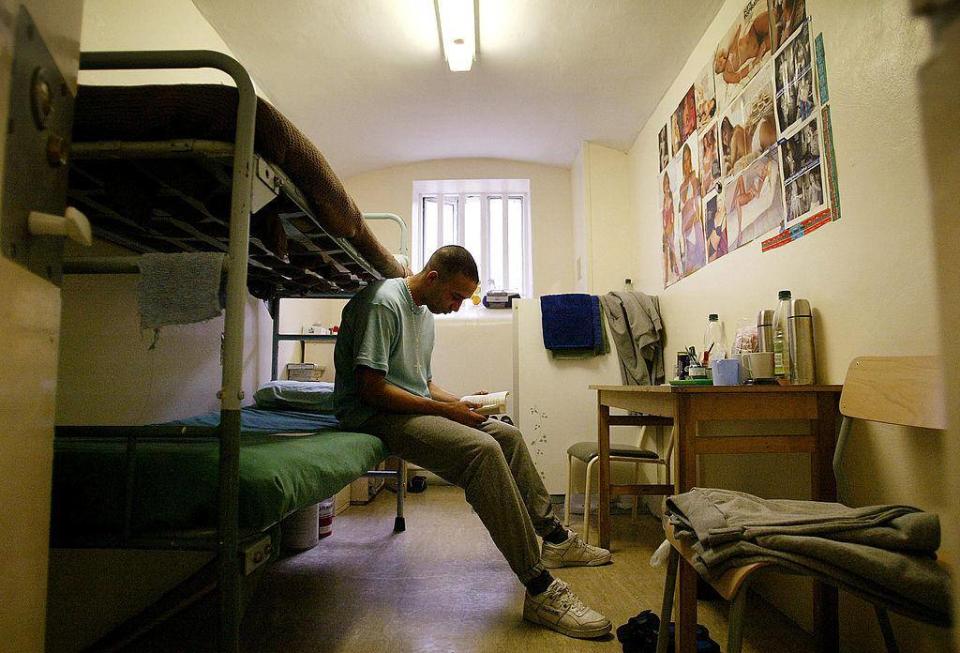UK has highest number of life sentence prisoners in Europe, study finds
The UK has more prisoners serving life sentences than any other country in Europe, according to a new report by the Prison Reform Trust.
There are 8,554 inmates across the UK serving life sentences – more than France, Germany and Italy combined. The British total also exceeds the number of life-sentence prisoners held in jails in Russia and Turkey.
Prison reform campaigners called for a major re-think in sentencing policy, arguing that it was “out of kilter” with the rest of the world and had created an overcrowding crisis in Britain’s jails.
The Liberal Democrats said “serious questions must be asked” about why the UK has the continent’s highest number of prisoners given life sentences.
Peter Dawson, director of the Prison Reform Trust, said there was both a “moral” and “practical” case for change.
“The longer sentences we’ve seen have not achieved anything in terms of reducing or deterring crime,” Mr Dawson told The Independent.
“We’ve been building prisons at an extraordinary rate for the last 25 years. We’ve had a massive building programme, and yet we still have this overcrowding problem.
“We can’t build our way out of the problem – we have to change tack and think about how you reduce the number of prisoners.”
The UK also tops the list of European countries for the proportion of citizens serving life sentences, at 13 per 100,000 head of population, according to an analysis of international figures from 2016 by professor Dirk van Zyl Smit and Dr Catherine Appleton.
The University of Nottingham criminologists carried out the work as part of the Prison Reform Trust’s annual “Bromley Briefings” report.
In France the proportion of citizens serving life sentences is far lower at just 0.7 per 100,000, while in Russia the rate is only 1.2 per 100,000.
Life-sentenced prisoners in the UK make up more than 10 per cent of the total prison population – higher even than the US, where the proportion stands at 9.5 per cent.
Sir Ed Davey, the Lib Dem home affairs spokesman, said: “While it is right to hand down life sentences to people who would endanger society, serious questions must be asked about why there are more prisoners serving life sentences in the UK than France, Germany and Italy combined.
“The Conservatives have failed to get a grip on the crisis in our prisons,” Sir Ed added. “Overwhelmed staff are simply unable to cope, leading to riots, widespread drug use and violence against staff. It is time to drag our prisons and sentencing policies into the 21st century.”
In England and Wales life imprisonment is an indefinite sentence, although in most cases the offender becomes eligible for parole after a fixed period set by a judge. Primarily, the sentences are handed down in cases of murder.
Legislation passed in 2003 set new guidelines for mandatory minimum sentences that offenders should spend locked up for murder in England and Wales.
The Prison Reform Trust blamed the legislation for a “dramatic increase in punitiveness”. The average minimum term served for murder has risen from 12.5 years in 2003 to 21.3 years in 2016.
Mr Dawson said the government should consider pushing for a more detailed range of murder charges, since there is currently no first degree or second degree murder charge.
“At the moment, our definition of murder covers a very wide range of offences,” said Mr Dawson. “The most obvious thing to do would be redefine the offence of murder and have different types of sentence for different types of murder so you only guarantee a life sentence for the most serious category.”
“There are people who made a catastrophic error when they were relatively young and they will spend many years in custody beyond the punitive part of their sentence,” he added.
“It deserves another parliamentary examination about whether this is the most sensible or humane way to deal with serious crimes.”
Glyn Travis, spokesperson for the POA, the prison officers’ union, said the current prison system was not coping well with the growth in inmates serving lengthy life sentences.
“Longer life sentences are being handed down more frequently. Our problem is managing those individuals over a long period,” said Mr Travis. “We’ve got a massive culture of drugs, authorised articles like mobile phones and increasing violence in prisons.
“We need a system that properly accommodates the long-termers who have no sight of being released, and who can often become difficult and challenging. Prison staff need support and training to deal with lifers, including training to deal with mental health issues.”
Alongside the 8,554 prisoners serving life sentences across UK jurisdictions, including Scotland and Northern Ireland, there are another 2,598 people serving other kinds of indefinite sentence.

The Imprisonment for Public Protection (IPP) sentence – of no fixed length – was used in England and Wales for serious cases such as manslaughter and rape, but was stopped in 2012. A similar kind of indefinite sentence, known as an “order for lifelong restriction,” continues to exist in Scotland.
“The UK’s use of indeterminate sentences is plainly out of kilter with the majority of international comparators,” said professor van Zyl Smit and Dr Appleton.
“But it is also at odds with its own historical approach to sentencing for the more serious crimes. That dissonance poses serious and urgent questions for government, parliament and prison services alike.”
A Ministry of Justice spokesman said: "Indefinite sentences are reserved for society's most dangerous criminals - those who commit serious sexual or violent offences like rape and murder and are a high risk to public safety.
"When indeterminate prisoners have served their tariff they can apply to the independent Parole Board who will consider whether they still represent a threat to society."

 Yahoo News
Yahoo News 
